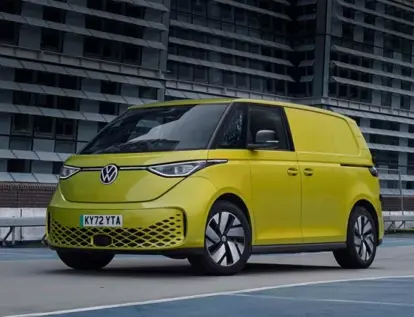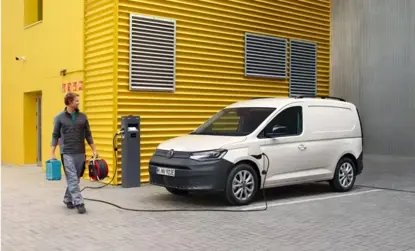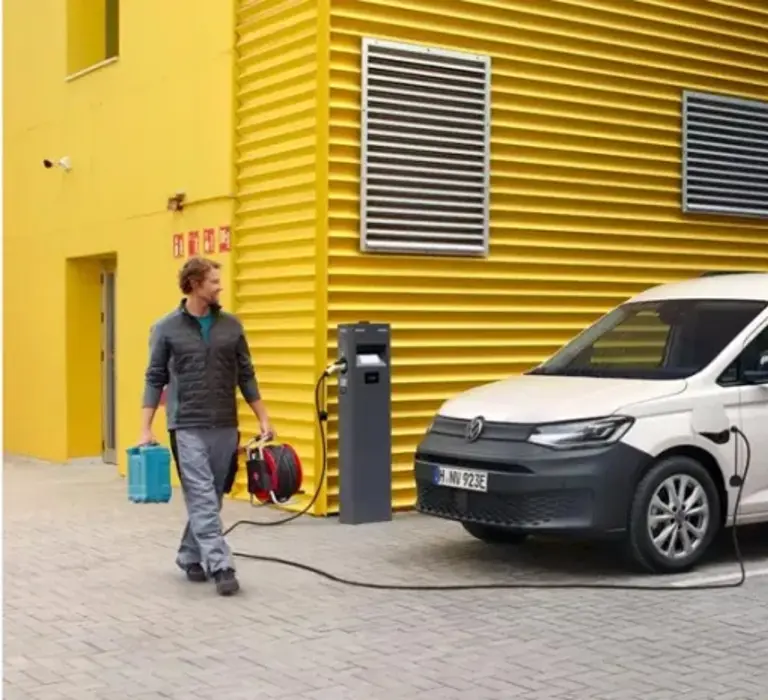Every month, Van Expert Tim Cattlin takes a look at what’s been happening in the van industry – be it new products, industry news, legislation changes – even the weird and wonderful. It’s all here…
Despite the fact that, as I write this we’re still officially in summer which traditionally is the quiet period in the motor industry, there are still things happening in the world of vans – and, unsurprisingly as I go through my notes taken over the past month, much of this chatter is connected with electric vans. Remember, due to the governments ZEV Mandate, this year 10% of all vans registered by each manufacturer must be electric, otherwise hefty fines will be incurred (there are one or two clauses which give them a bit of wriggle room, but they’ll have to pay back the numbers at some point). Looking at the stats so far (up to July), only 4.8% is being achieved overall, and whilst the likes of Peugeot, Nissan and Maxus are looking good for the 10%, the mighty Ford has only registered 1.2% of its sales as electric. There’s a long way to go…

So, what has been hitting the headlines during August? For me, the biggest product news is from Volkswagen who surprised all of us close to the industry by announcing a new model of the ID Buzz Cargo. I’ve driven the original van at length and the 204PS electric motor gives the VW a massive lump of performance but, apparently, this isn’t enough. The ID Buzz Cargo 4Motion not only gives the driver all-wheel drive, it’s fitted with two electric motors providing a total of 340HP, one motor driving the front wheels, the other the rear. Although the standard Buzz has an excellent towing capacity for an electric van of 1200kg, this additional power sees this capacity upgraded to 1800kg (towing this will clobber the range you’ll get from a fully charged battery however). Final specifications for the UK market have yet to be released but, the German version with its 79kWh battery offers an official range of 268 miles (just shy of the 276 miles offered by the standard van) and I’d expect we’ll see the same configuration here in the UK. There’s no release date or pricing just yet.

Otherwise, there’s not much to report on product, although, staying with Volkswagen the company has announced the launch of a hybrid powered Caddy van – possibly unsurprising as the platform sharing new Ford Transit Connect is also offered with the same powertrain. The Caddy eHybrid PHEV (to give it its full title) is fitted with a 1.5 litre petrol engine which works in harmony with a 19.7kWh motor to provide a combined power output of 150hp. With a range of 76 miles when using battery power alone, the van should be eligible for the government’s plug-in van grant. A 6-speed automatic gearbox is standard. No firm date or pricing has been announced just yet.
There’s been lots of speculation (and concern) from used van buyers about the state of health of the battery in a prospective purchase. Although most manufacturers now offer an 8 year battery warranty (guaranteeing that the pack will still retain a certain percentage of its original capacity) the prospect of their purchase eventually needing a replacement battery (and, let’s face it, given the likely cost it almost certainly wouldn’t be economically viable, let alone affordable) might well cause them to reconsider. Research released this past month shows that 87% of motorists want an independent, certified assessment showing the condition of the battery, and how well it has been looked after – for example, regular high speed charging can degrade the battery faster than one that has been slow charged for most of its life. Although there are now stories circulating of 10 year old vehicles with very high mileages having batteries that are still almost as good as new, this won’t be enough to satisfy the understandably cautious used van buyer. Perhaps this is one reason why the used electric van market is still weaker than the trade would like it to be. In a ‘Plan for the Automotive Sector’ published last year by the Labour party, a suggestion is made that ‘assurances of the battery health of used cars (and vans!) is the best driver to stimulate demand’. Let’s see if this comes to fruition – and remember that higher (residual) values of used vans could mean that the lease payments for a new vehicle may reduce…
Struggling to find a rapid charger when you’re out on the road in your electric van? Well, if you operate in and around Essex, you’ll maybe struggle no longer if a planned new charging hub in West Thurrock becomes a reality. The proposal, if it comes off, will have the capacity for 500 vans (not a typo) to park and charge – now, it’s not clear if that means there will be 500 charge points, I suspect not, but, there’s no doubt this would be a real boost for EV operators in or passing through the vicinity. As the adoption of EV’s continues, I think more companies will see the potential revenue that this sort of facility could generate, and we could see many more popping up, keeping the wheels of industry moving and encouraging more businesses to switch over to an electric van.
A quick heads up here for those operating Ford Transit Customs or Transit vans fitted with the 2.0 litre EcoBlue diesel engine. Ford has reduced the change interval for the timing belt from 10 years / 150,000 miles to 6 years / 100,000 miles. This is due to a number of premature failures of the belt which runs in oil. Ford said in a statement ‘The service interval has been changed in order to address issues with timing belt service life, caused by engine oil dilution/ vehicle operation conditions/ usage. Oil dilution can occur on the latest generation of low-emission diesel engines when the emissions system cleans the diesel particulate filter (DPF) and is influenced by the customer’s vehicle use cycle’.
And finally (in true News at Ten fashion, for those of us old enough to remember) – Citroen asked 2000 van drivers what their most popular hobbies were. Stereotypes have been swept off the board here when 44% cited cooking and baking, 38% said gardening was their hobby of choice, and arts and crafts were preferred by 22% of respondents. But, all is not lost, as 39% said that a full English breakfast was how they preferred to start the day. The white van man (and woman) lives on!
